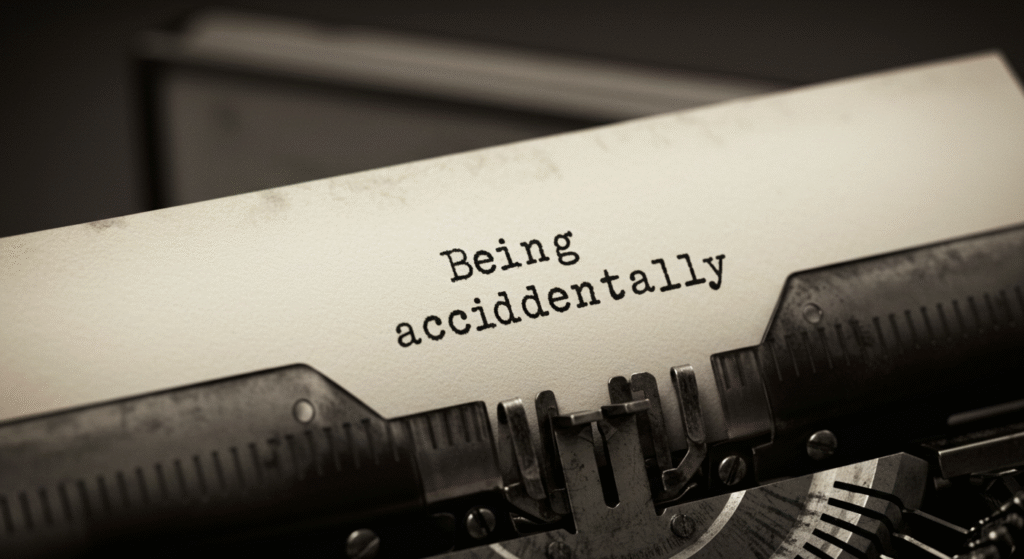Somewhere between the sweat-drenched palms, the crumpled note cards, and the nervous throat-clearing, a graduation speech is born. Or stumbles into existence.
Whether you’re the valedictorian, the surprise speaker, or just someone “voluntold” into it (yep, that’s a thing), your words might echo in someone’s memory for years… or fall flat like a three-day-old soda. The truth is, crafting a memorable graduation speech is as much about what you leave out as it is about what you put in.
And let’s be honest the stakes are weirdly high. You’re standing between a sea of caps and the actual diploma. Or worse, the buffet. So before you start stringin’ together quotes from Pinterest and that one time you fell off the monkey bars in fifth grade and “learned something,” let’s talk real.
Here are 15 things to avoid in a graduation speech — not because they’re illegal (though they probably should be), but because they’ll make your speech feel like a soggy napkin instead of a celebration.
1. Clichéd Phrases That Sound Like a Greeting Card Gave Up
“Shoot for the stars.”
“The world is your oyster.”
“Don’t cry because it’s over, smile because it happened.”
If your speech sounds like it was written by an overly sentimental AI stuck in 2009, start over. People want a real voice, not a verbal glitter bomb.
Even if you do believe those sentiments, say them your way. Try something like:
“Life’s a bit like Google Maps — blurry when zoomed in too close, but clear when you pause to zoom out. Don’t get stuck on one pixel.”
See? Same idea. Less eye-roll.
2. Inside Jokes That Leave 95% of the Room Out
Your speech is not a private party.
Yes, your class probably had that one physics teacher who talked to squirrels. Or that one cafeteria lunch that smelled like betrayal. But if only 30 people in the room know what you’re talking about, the joke dies a quiet death.
Inside jokes, if used, need a bridge.
Instead of saying, “Remember when Mr. Klein microwaved a lizard?” say, “Our science teacher, Mr. Klein, who somehow thought reheating roadkill could teach us thermal conduction…”
Audience engagement means letting everyone in on the laugh, even if they weren’t there.
3. Being Accidentally (or Aggressively) Self-Centered

We get it — you aced AP Chem, started your own charity, and were voted “Most Likely to Succeed” and “Most Likely to Wear a Blazer to a Beach Party.”
But this ain’t a TED Talk. Graduation is collective.
Commencement speech guidelines emphasize reflecting the class’s shared journey — not just your personal highlight reel.
Try:
“We’ve all had victories — some loud, some quiet. But what binds us isn’t just our success, it’s the way we helped each other get there.”
Celebrate the we, not just the me.
4. Overused Quotes Without Context
Quoting Steve Jobs? Maya Angelou? Taylor Swift? Fine.
But don’t just lob a quote like a grenade and hope it lands.
One of the most common speech mistakes is tossing out a famous line without unpacking it. What does it mean to you? Why does it matter here?
If you say, “As Nelson Mandela once said, ‘It always seems impossible until it’s done,’” follow it with something real. Like:
“And for us, that impossible thing might’ve just been passing pre-calc while working a part-time job and applying to 9 colleges. We get it now, Nelson.”
5. Neglecting to Structure Your Speech
A wandering speech is a sleeping audience.
One moment you’re talking about your kindergarten nap mat, the next you’re quoting Socrates. We need a graduation speech outline that gives the audience a journey — beginning, middle, end. Not a mental game of hopscotch.
Even if your structure’s subtle — like past, present, future — it helps people follow you.
A strong structure and organization is like a GPS for the ears.
6. Getting Weirdly Negative or Bitterness-Heavy

Sarcasm has a place. But there’s a line between witty and bitter, and it’s razor thin.
Avoid lingering in the past with resentment. “Some of us never got the recognition we deserved.” “Not all teachers believed in us.” Yikes.
A negative tone can drain the energy from your speech. Be honest, sure — but leave folks feeling uplifted. You’re closing a chapter, not slamming the book shut.
7. Forgetting Your Audience Isn’t Just Classmates
You’re speaking to parents, grandparents, faculty, maybe even bored younger siblings.
So when you start dropping slang like “That exam had us all feral, no cap,” remember: Grandma doesn’t know what a “cap” is unless it’s on a bottle of Ensure.
Audience consideration is part of good speechwriting for graduates. Keep your language accessible, without dumbing it down.
8. Talking Too Long (Or Way Too Short)
Too short, and it feels like you didn’t care.
Too long, and people start dreaming of chicken tenders.
The sweet spot? 6–10 minutes. Enough time for an inspirational message, a personal story, and a clear call to action.
Pacing in speeches is critical. Don’t rush. Don’t meander. Say what you came to say, then let the applause carry you off.
Read This Blog: https://cozygreets.com/filter-with-shower-head/
9. Fake Tears or Forced Sentiment

Tearing up is human.
But fishing for it — fake sniffles, long dramatic pauses for effect — can come off as disingenuous.
Emotional expression is good, but it should feel earned, not engineered. Realness resonates. Pretending doesn’t.
10. Cringe Humor That Aged Like Milk
There’s nothing like a TikTok reference that already feels stale to make your speech sound like it was written by an outdated bot. Humor’s great — but use funny graduation speech ideas that reflect your actual voice, not trends you don’t fully get.
If you wouldn’t say it in real life, don’t say it from a podium.
11. Overpromising or Making Wild Predictions
“We’re going to change the world.”
“Watch out, Fortune 500, we’re coming for you.”
It’s okay to dream big, but don’t make your class sound like a Marvel reboot. Unrealistic expectations feel hollow — and alienate those who are just trying to figure out next week.
Try grounding your ambition.
“We don’t know where we’ll end up, but we know we’ve been trained to care — and that’s a good place to start.”
12. Forgetting to Practice Speech Delivery

You could have the most beautifully crafted words — and still flop if you mumble them into a mic like a haunted ASMR channel.
Speech delivery matters. Practice tone, body language, eye contact, and pacing. Don’t read every word like you’re seeing it for the first time.
Rehearsing isn’t vanity. It’s respect for the moment.
13. Overloading with Too Many Stories
One solid, personal story beats five rushed ones.
This isn’t your memoir — it’s a snapshot.
Pick one or two experiences that shaped you (or your class) and make them real. Anchor them with details. Use personal experiences to show growth, humor, struggle — all the flavors.
14. Skipping the Big Thank You
It’s wild how many speeches skip over appreciation.
Thank your teachers, parents, support staff, even the friend who let you copy their French homework (once, maybe).
Gratitude doesn’t make you cheesy. It makes you grounded.
15. Not Leaving the Audience with Anything to Take Home
People forget words. But they remember feeling.
Leave them with one line that sticks. One truth they carry. Your graduation speech content should have a takeaway — something that lingers past the ceremony.
Maybe it’s,
“Success doesn’t always come with a standing ovation. Sometimes, it looks like showing up again the next day.”
That’s the stuff that makes a graduation ceremony speech feel like it mattered.
How to Write a Graduation Speech That Feels Like You
So, after all that — how do you actually write it? Here’s a few public speaking dos and don’ts to ground you:
- DO read examples. But don’t mimic. Look at graduation speech examples for inspo, not scripts.
- DON’T try to be someone you’re not. If you’re funny, be funny. If you’re quiet and thoughtful, bring that.
- DO use a graduation speech outline. Even if it’s messy.
- DO imagine someone in the audience really needing to hear your words. Then speak to them.
- DON’T aim for viral. Aim for honest.
Frequently Asked Questions
things to avoid in a graduation speech
What should I avoid mentioning in a graduation speech?
Avoid controversial topics, inside jokes that not everyone will understand, and negative comments about the school or classmates.
Is it okay to talk for a long time during the speech?
No, keep your speech concise—long speeches often lose the audience’s interest.
graduation speech cliches
What are some overused lines in graduation speeches?
Phrases like “this is not the end, it’s just the beginning” or “follow your dreams” are common clichés.
Should I completely avoid all clichés?
It’s best to use original thoughts, but if you do include a cliché, add a personal twist to make it meaningful.
graduation cliches
What are typical graduation clichés to watch out for?
Common ones include tossing the cap, quoting famous people without context, or saying “we made it against all odds.”
How can I make my speech stand out from the usual clichés?
Share specific, personal stories or lessons that reflect your unique journey.
A Final Word
You don’t need perfect words.
You need real ones. A graduation speech isn’t about sounding wise — it’s about honoring a moment. Sharing your truth in a room full of people who are probably just as scared, excited, and confused as you.
